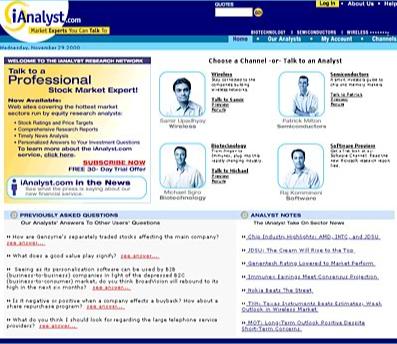I continue my discussion on ways to make money using Twitter. Previously I covered what I considered are bad (ineffective) methods, now I’ll cover the rest.
The ugly (misleading):
Promoting users/lists: Certain users with a large number of followers (though only slightly more than I have) started doing personal shoutouts and including users in their lists for small sums of money. I assume the people who buy these services do so to get followers. To a limited degree, this will probably work. Moreover, if the people who promote these offers have multiple accounts as many people do, I would imagine all their accounts would suddenly follow the paying users (this could easily be 20-50 accounts – to some this is a lot of followers!).
With that being said, this has to be one of the most inefficient ways of getting followers. If these were celebrities who offered these services, fine (it would probably be pretty effective being in Conan O’Brien’s list! Just think of @LovelyButton), but we’re not talking celebrities here. I would never consider charging people to be in one of my lists because I think doing so would imply that this bestows some value, and let’s face it, it does not. Note that I have to say, it’s very easy getting followers, at least when talking about a small number (100-200) and I don’t think paying users expect more than that from a single tweet.
An additional issue is that I would expect this practice to stop at some point. Personally – and I know many others feel the same way – I treat the shoutouts as noise/spam. These are (personal) ads after all, and my comment from the previous post applies – most Twitter users do not like any tweet that feels commercial in nature. I predict that eventually enough users would have these ‘offending’ advertisers be blocked & reported for spam and this will lead to their suspension.
The Good (effective)
I’ve written about this in multiple separate posts. I believe that Twitter’s strength lies in creating relationships, networking, doing PR for yourself/your company, so most of this section deals with these. However, the first method is unrelated.
- Advertising: Using companies such as Ad.ly and SponsoredTweets it is possible to tweet something and get paid for it. This actually does work. But: (a) You’re dependent on being offered to tweet these and there aren’t a ton of those and (b) unless you have a lot of followers, the sums involved tend to be pretty low.
- Getting clients: by being active on Twitter, it is possible to get clients. Although pushing yourself and being interactive helps, by just having a good bio, descriptive background and including a link to your website it’s quite possible to draw attention. Personally I’ve had success with this. I have to emphasize that I believe this strongly depends on the industry: i.e. I doubt dentists can gain clients this way.
- Building relationships: I’ve written about this before. By networking you are likely to meet like-minded people who, by knowing them, in the long run, will result in monetary gain. I’ve met quite a lot of people who got me involved in conferences (i.e. Social Media 201), started collaborations, and introduced other people and clients to me. This does require effort though.
- PR: I’m probably the millionth person to say this, but in this day and age, companies need to be able to engage their clients. By having an active Twitter account that listens to complaints/issues and addresses them, a company can greatly improve their reputation. This is a topic that we discussed quite heavily at Social Media 201.
- Twitter services: basically, by offering the previous methods to other people or companies, you can make money. There’s in fact a new course that trains people to become social media managers.
This is definitely a way that works. Again, talking from personal experience here. You can get paid far more doing this than from paid tweets or trying to push affiliate links. I believe this is the most effective way to monetize Twitter. Note that in many ways the method I included under ‘ugly’ can be said to fall under this category – true – however, I think it’s the choice of which services to offer that makes the difference. Implying someone will get a lot of followers if someone tweets your bio is misleading.
Not sure
I’ll include this one last category as well.
- Niche accounts: I’ve actually dabbled with this but it’s a variation of the methods I previously mentioned. Basically, it’s an account that declares in advance that it will provide information and deals. This can be done using affiliate links or point to your business site.
Does it work? Maybe. Personally I’ve not tried it long enough to be able to tell. However, I CAN tell say that many users still consider this to be spam despite the user “announcing” in advance what it is all about.
- Trending topics: I included this but I will admit I don’t know it well enough to elaborate. The goal is to create accounts that tap into Google’s real time indexing of trending topics. I don’t fully know how this works, just that by doing so, it is possible to get an affiliate link into the top of the search of Google. I would imagine this involves creating quite a lot of users. I heard this worked for some but don’t know how successful it was and, as you can guess, I never tried it myself. I figured I should still mention it.









